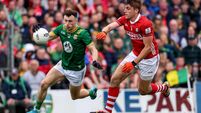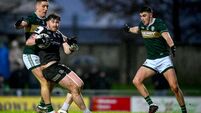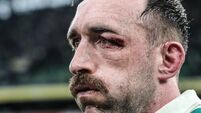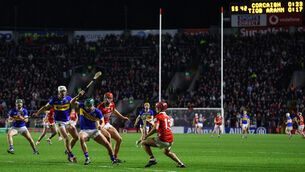Ireland spin the Ferris wheel of football on return to Austria

The first was for a beginning: the 2008 European Championship final defeat of Germany, through a clever Fernando Torres goal, which set Spain off on their stunning hat-trick of Euros, World Cup and Euros triumphs, an unprecedented sequence of serial success which rubber-stamped their claim to be regarded as one of the greatest football teams of all time.
My second visit was for an ending: the 1-0 loss to Austria in a World Cup qualifier in 2013 which marked Giovanni Trapattoni’s last game as Ireland manager. With Irish qualification hopes for Brazil already hanging by the slenderest of threads before kick-off, you could say the writing had been on the wall. Or, to be more precise on a tricolour draped outside Charlie P’s Irish pub in Vienna on the day of the game: “Is there anything to be said for saying another mass?”












